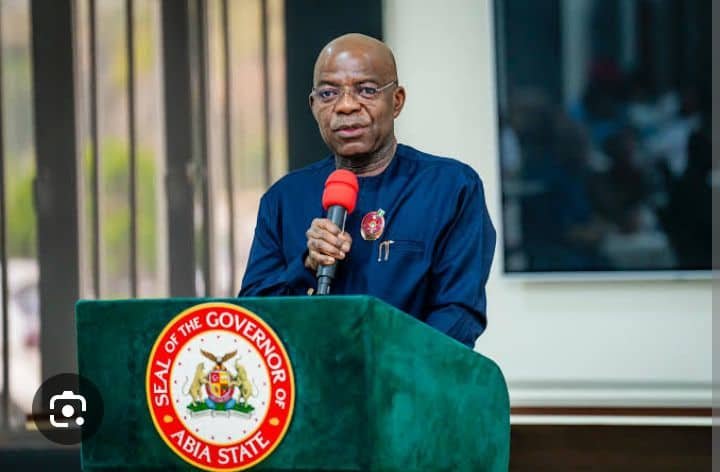Insights into Otti’s Environment Master Plan for Abia State
Otti’s Environment Master Plan is a comprehensive strategy aimed at addressing environmental challenges and promoting sustainable development. The plan focuses on key areas such as reducing carbon emissions, increasing the share of renewable energy, combating deforestation, and managing plastic waste. Below is a detailed analysis of these areas, with a focus on global, African, Nigerian, and specifically Abia State statistics.
Global CO2 Emissions
Global CO2 emissions in 2023 reached approximately 37 billion metric tons, with China, the United States, and India being the top contributors. Africa, despite accounting for 17% of the world’s population, contributes only about 3-4% of global CO2 emissions due to its lower levels of industrialization. Nigeria, however, emits around 126 million metric tons of CO2 annually, primarily from gas flaring, transportation, and energy production. In Abia State, CO2 emissions are relatively low compared to industrial hubs like Lagos and Rivers State, but challenges persist due to deforestation and the use of fossil fuels in transportation and small-scale industries.
Renewable Energy Share
Globally, renewable energy accounts for approximately 30% of electricity generation, with hydropower, wind, and solar leading the way. Africa has immense renewable energy potential, with about 22% of its energy coming from renewables, primarily hydropower and solar. In Nigeria, less than 15% of energy is generated from renewable sources, despite the country’s significant solar, wind, and hydro potential. Abia State has begun exploring solar energy projects, but renewable energy adoption remains low. Under Otti’s leadership, the state government is prioritizing solar energy and biogas projects to reduce reliance on fossil fuels.
Deforestation Rate
The world loses about 10 million hectares of forest annually, with the Amazon, Congo Basin, and Southeast Asia being the most affected regions. Africa loses approximately 3.9 million hectares of forest each year, driven by agricultural expansion, logging, and urbanization. Nigeria has one of the highest deforestation rates in the world, losing about 3.7% of its forests annually due to illegal logging, charcoal production, and land conversion for agriculture. Abia State has experienced significant deforestation, particularly in rural areas, due to illegal logging and agricultural activities. Otti’s Environment Master Plan includes reforestation initiatives and stricter enforcement of environmental laws to address this issue.
Plastic Waste
Globally, over 400 million tons of plastic are produced annually, with only 9% being recycled. The rest ends up in landfills, oceans, or incinerators. Africa generates about 17 million tons of plastic waste yearly, with poor waste management systems exacerbating the problem. Nigeria produces over 2.5 million tons of plastic waste annually, with Lagos alone accounting for a significant portion. Poor waste management and lack of recycling infrastructure are major challenges. In Abia State, plastic waste is a growing issue, particularly in urban areas like Umuahia and Aba. Otti’s plan includes the establishment of recycling plants and public awareness campaigns to reduce plastic use.
Abia State and Otti’s Environmental Initiatives
Abia State faces several environmental challenges, including deforestation, pollution, poor waste management, and energy poverty. Illegal logging and agricultural expansion have led to significant forest loss, while industrial activities, particularly in Aba, contribute to air and water pollution. Poor waste disposal systems have resulted in littered streets and clogged drainage systems, exacerbating flooding during the rainy season. Many communities rely on fossil fuels for energy, contributing to CO2 emissions and health issues.
Governor Alex Otti’s administration has prioritized environmental sustainability through a series of initiatives. Reforestation programs are being launched to restore degraded forests and promote biodiversity. Solar energy projects are being implemented to provide clean and affordable energy to rural and urban areas. Waste management reforms, including the establishment of recycling plants and the introduction of waste-to-energy technologies, aim to reduce plastic waste and improve sanitation. Public awareness campaigns are being conducted to educate citizens on the importance of environmental conservation, and stricter enforcement of environmental laws is being introduced to curb illegal logging, pollution, and improper waste disposal.
The expected outcomes of Otti’s Environment Master Plan include reduced CO2 emissions through increased use of renewable energy and reforestation efforts, improved public health due to better waste management and reduced pollution, economic growth driven by renewable energy projects and recycling initiatives, and sustainable development that aligns with global sustainability goals. If successfully implemented, Abia State could serve as a model for other states in Nigeria and across Africa.
Conclusion
Otti’s Environment Master Plan is a bold and necessary step toward addressing Abia State’s environmental challenges. By focusing on renewable energy, reforestation, waste management, and public education, the plan aims to create a sustainable and prosperous future for the state. Abia State is on course to serve as a model for other states in Nigeria and across Africa.

Dr Chukwuemeka Ifegwu Eke writes from the University of Abuja Nigeria







